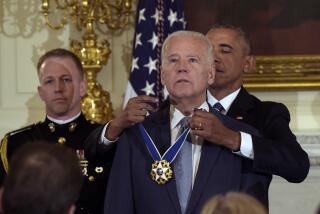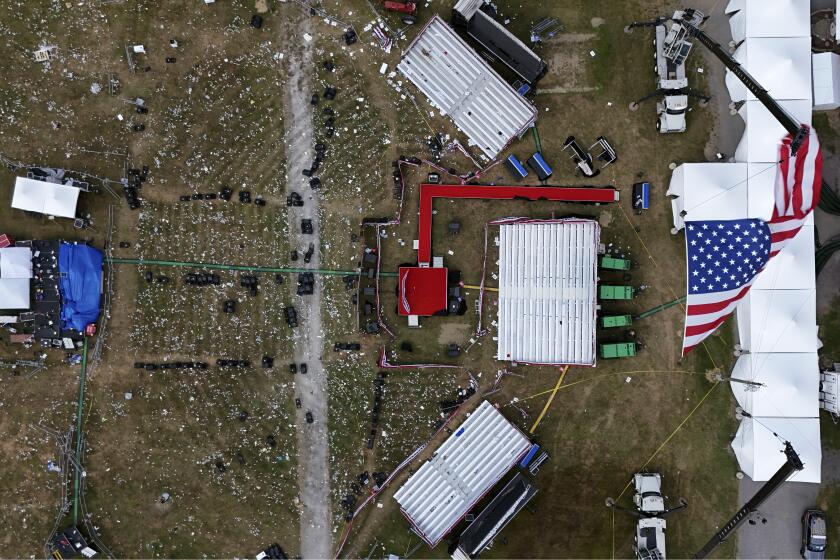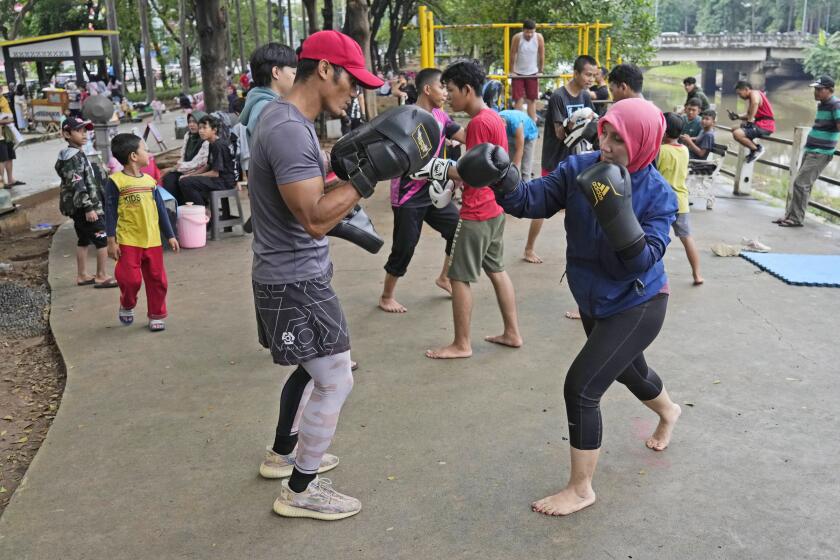5 Whites in S. Africa Parliament Join ANC : Politics: Democratic Party members’ move gives the country’s largest black organization a legislative voice.
Five white members of the Democratic Party, the liberal force long led by the anti-apartheid campaigner Helen Suzman, joined the African National Congress on Tuesday, effectively giving the ANC its first seats in the white-controlled Parliament.
“The second liberation struggle will start here, to end racism, distrust, (white) minority fears and poverty,” declared Dave Dalling, one of the converts and a member of Parliament from the wealthy Johannesburg suburb of Sandton.
The group, which had long agitated for closer Democratic Party ties with the ANC, made its decision after concluding that “working toward a democratic transition cannot be done from the comfortable sidelines of minority politics,” said Jannie Momberg, a Democratic defector from Simon’s Town in the Cape province.
Although the five men will be listed as independents in Parliament, their new allegiance gives the ANC its first voice in the legislative body that it has long criticized as being unrepresentative.
As currently constituted, Parliament has a white chamber and two less-powerful chambers for Indians and mixed-race Coloreds. Blacks have no vote in Parliament, and for years the ANC, the largest black organization in the country, has called for a boycott of parliamentary elections.
The move is likely to have little immediate effect on decisions in Parliament, which has been effectively replaced by the Convention for a Democratic South Africa, a negotiating forum that includes the government, the ANC, the Democratic Party and 18 other political groups.
At a press conference called to announce the decision, ANC spokesman Pallo Jordan welcomed the men as “our five new comrades.”
Democratic Party leader Zach de Beer said he will formally expel the five--Dalling, Momberg, Pierre Cronje, Jan van Eck and Robert Haswell. Last week, he suspended them after learning that they had held a private meeting with ANC President Nelson Mandela.
“On the whole, this may not be a bad thing,” De Beer said. Both De Beer and ANC leaders expressed the hope that the party’s good relations with the ANC would continue, despite the defections.
The Democrats hold fewer seats in the white chamber than the majority National Party of President Frederik W. de Klerk and the right-wing Conservative Party, led by Andries P. Treurnicht. But the party, formerly the Progressive Federal Party, has a long tradition of opposition to apartheid, exemplified by Suzman, who for many years was its sole representative in Parliament.
Democratic support for De Klerk’s recent referendum on the future of negotiations was a key factor in its success.
The defections reflect deep divisions within the Democratic Party. One faction wants much closer links with the ANC. Another faction wants to join forces with De Klerk’s National Party, fearing the ANC’s ties with the Communist Party and its support for strong central control of the economy.
A third group, led by De Beer, prefers to maintain the party’s historic role as an independent watchdog on both the government and the ANC.
More to Read
Sign up for Essential California
The most important California stories and recommendations in your inbox every morning.
You may occasionally receive promotional content from the Los Angeles Times.







